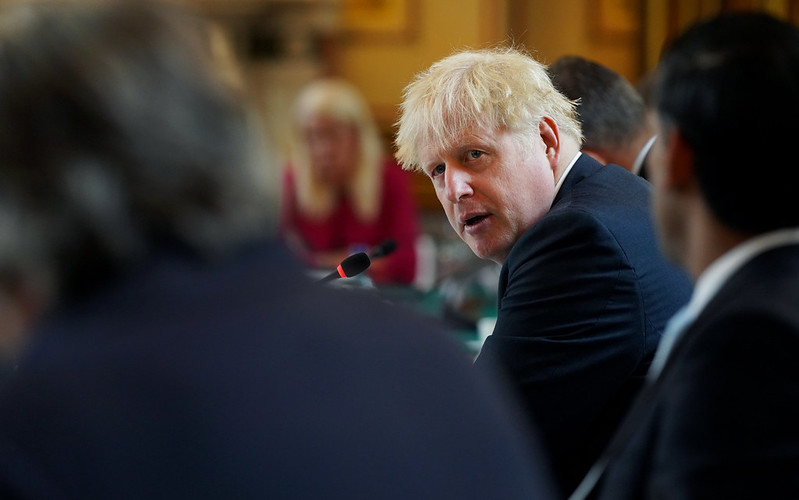
The spotlight is once again on Covid as the public inquiry heats up amidst its second round of hearings. The stage was set for a gripping showdown as former Downing Street advisors, Dominic Cummings and Lee Cain, took centre stage. Both of them delivered scathing critiques of the government they established, served in and ultimately resigned from.
Much like its predecessors, this public inquiry has been set in motion to examine and report on the public health catastrophe that was Covid-19. Imagine this as a legal spectacle where evidence is unveiled through witness testimonies, documents, and expert opinions. The ultimate objective? Unearth the unvarnished facts surrounding the pandemic response, pinpoint any shortcomings or missteps, and chart a course for improvement or change. The findings and recommendations of a public inquiry will later be presented in a comprehensive report.
Leading the charge is the inquiry’s chair Baroness Hallett, a former judge and crossbench peer, renowned for her lead of the independent investigation into the 7/7 bombings.
Previous inquiries have been criticised for the fact that by the time they publish their findings, central figures are not accountable as often they had already retired from public life. To avoid this issue, the Covid inquiry plans to unveil its findings in real-time.
To achieve this, the inquiry has been sectioned into a number of separate modules, five of which are currently active: resilience and preparedness, UK decision-making and political governance, impact of the pandemic on healthcare systems, vaccines and therapeutics, and procurement. The initial findings, focused on resilience and preparedness, are slated for release by the summer of 2024. Brace yourself, though — the grand finale, the comprehensive report, may not be published until 2027.
From the inquiry so far, we’ve gained two crucial insights that cast a revealing light on the government’s pandemic preparedness — or lack thereof.
First and foremost, it appears that the government’s readiness for a pandemic was somewhat off the mark. Planning was focused on “a pan flu and ignored the possibility of a respiratory virus pandemic.” It’s important to note that this particular critique doesn’t solely rest on the shoulders of the Johnson administration, which only occupied Downing Street for eight months before the pandemic was unleashed. An important document was the UK Influenza Pandemic Preparedness Strategy published in 2011, which failed to clearly outline a response to respiratory viruses.
Adding fuel to the fire, Health Secretary Matt Hancock emphasised the absence of planning for a lockdown scenario. He explicitly stated that there was “no preparation for quarantine, social distancing or lockdown.” This distinct level of unpreparedness left the government on shaky ground as it grappled with the onset of a global pandemic.
Turning the spotlight on former Prime Minister Boris Johnson, a glaring lapse of duty seems apparent — Johnson was absent from five COBRA meetings immediately leading up to Britain’s pandemic outbreak. According to Dominic Cummings, Johnson was preoccupied with writing his book on Shakespeare at Chevening House, the Foreign Secretary’s country retreat. This was to prevent the loss of an alleged £500,000 advance payment. The book remains unpublished.
Johnson was absent from five COBRA meetings in the period immediately leading up to Britain’s pandemic outbreak. According to Dominic Cummings, Johnson was preoccupied with writing his book on Shakespeare.
In a ruthless critique, Cummings took aim at Health Secretary Matt Hancock, laying bare accusations of incompetence, while Prime Minister Boris Johnson faced an attack for what was described as an inability to maintain focus on critical issues. Lee Cain, the former Downing Street Director of Communications, didn’t mince words either, characterising the pandemic as the “wrong crisis for this Prime Minister’s skillset.” One can’t help but wonder what crisis would align with that particular skillset.
Yet, amidst the fervour sparked by Cummings’ revelations, it’s essential to consider the complex character of the man himself. Despite playing a pivotal role in propelling Boris Johnson into Downing Street and securing a landslide election victory, Cummings’ testimony carries an undertone of vengeance. There is a clear irony; the key architect of the political success of Johnson and Brexit who was ousted after briefing against the PM now turns on his own creation.
Looking to the future, the inquiry’s upcoming hearings are set to feature heavyweight figures, each armed with their own version of the truth. The much-anticipated appearance of Boris Johnson on the witness stand is drawing nearer, providing the former Prime Minister with a platform to counter the barrage of criticism unleashed by his former aides.
Adding another layer of intrigue to this unfolding saga, Rishi Sunak, the current Prime Minister, is also slated to take the stand, owing to him being Chancellor of the Exchequer during the pandemic. Sunak’s testimony will send ripples through the political landscape, especially as we draw nearer to the next election. The stakes are high, and the outcome of this next phase of hearings could hold the key to determining the trajectory of the Conservative’s political fortunes.
Sunak’s testimony will send ripples through the political landscape, especially as we draw nearer to the next election.
If the hearings unravel and deepen the narrative of missteps and shortcomings in the government’s handling of the Covid crisis, it could serve as a potent catalyst for a Labour Party victory. The spectre of electoral defeat hangs in the balance, and the political landscape may undergo a seismic shift if the public perception tilts decisively against the Conservatives.
Despite Rishi Sunak’s ambitions to reshape his top cabinet team by bringing the former, now ennobled, Prime Minister David Cameron into the fold as Foreign Secretary, the fate of the impending election may prove to be a force beyond his control.
The Covid-19 public inquiry is destined to dominate headlines for the foreseeable future. The inner workings of government will continue to be laid bare, providing an unprecedented glimpse into the decision-making processes that defined a critical chapter in modern history.


